This award was formerly an honor bestowed by the Academy but is no longer a category of current consideration. The Academy Honors Committee and Academy leadership review and update award categories to best align with the audiology profession.
A list of past recipients can be found below.
Award Winners
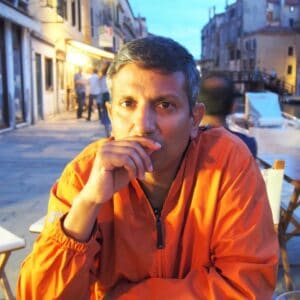
According to his academic profile on Northwestern’s website, Dr. Sumit Dhar’s research can be summarized as, “”studies the sounds created within the inner ear, then examines their behavior under a variety of conditions. By understanding the physiology involved, it is hoped that better diagnostic tests may be able to be designed to test for hearing loss.”” This summarizes his research so well and so simply for something so complex.
Dr. Dhar’s career started with a bachelor’s degree from the University of Bombay in Mumbai, India. He then moved to the United States and was awarded his master’s degree from Utah State University. His master’s thesis, “”The Dependence of the 2f1 – f2 Distortion Product Otoacoustic Emissions (DPOAEs) On Primary Levels in Normal-Hearing Ears,”” set the stage for his career researching the complexities of cochlear mechanics and OAEs. His Ph.D. was awarded in 2001 from Purdue University with the dissertation, “”A Detailed Study of Distortion Product Otoacoustic Emission Fine Structure in Normal-Hearing Adult Human Ears.””
Dr. Dhar previously was faculty at Indiana University, and during his time there he was given the honor of excellence in teaching. In 2004, he moved to Northwestern University. During the decade, he has been at Northwestern; he had advanced from assistant to full professor to department chair in 2014. He was instrumental in the designing, planning, and staffing of a new clinical facility for Northwestern, which opened in January 2015. In 2013, he was honored with the Clarence Simon Award for Outstanding Teaching and Mentoring. He has mentored many students, both PhD and AuD, through research projects and dissertations.
Dr. Dhar’s accomplishments are many. His research has expanded the clinical possibilities and knowledge for OAEs. As Dr. Samira Anderson, Dr. Dhar’s nominator, states, “”He is currently working on a project to improve detection of ototoxicity through new methods of assessing distortion product otoacoustic emissions, and an additional project to improve detection of ear disease before hearing aid use. These projects have immediate ramifications for clinical practice and for improving the hearing health of our patients.”” He has 51 peer-reviewed articles, and he has given over 150 invited presentations, over 60 abstracts and posters, and even has co-authored the book, “”Otoacoustic Emissions Principles, Procedures, and Protocols“” with Dr. James Hall. In addition to writing and presenting, he also reviews and edits. Dr. Dhar has served as a grant reviewer for the National Institutes of Health, the United States Navy Office of Research, the United States Army Office of Research, the American Academy of Audiology, and the American Hearing Research Foundation. He is associate editor of Audiology Today and www.audiology.org, and he serves on the editorial boards of the Journal of the American Academy of Audiology and Plural Publishing.
Finally, Dr. Dhar has been active in professional organizations. He was a member of the inaugural Jerger Future Leaders of Audiology Conference in 2008. He has been a member of several committees with the American Academy of Audiology. Dr. Dhar has served on the board of directors and as president of the Illinois Academy of Audiology.
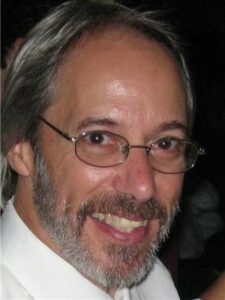
Dr. Clark has outstanding contributions to the field over the past 40 years through his teaching, research, clinical work, and as an author of seminal texts in audiology. Dr. Clark received his clinical training at the University of Texas at Austin and his doctorate at the University of Cincinnati. He maintains a private practice in Middletown, Ohio and is on the faculty at the University of Cincinnati’s doctoral program in audiology. He also holds an adjunct faculty appointment at the University of Louisville, Kentucky.
Dr. Clark is an exceptional educator as both a professor and author. As a professor, his dedication and knowledge, combined with enthusiasm and support, have inspired generations of audiology students, enabling them to achieve success in their careers. Dr. Clark is a scholar whose research and teaching have focused on amplification, adult audiologic rehabilitation, counseling, and animal audiology. While he leaves an outstanding legacy as a professor, it is perhaps his prolific record as a researcher and author which is even more remarkable. Over the years, Dr. Clark’s academic authorship has included 16 books, 17 book chapters, 17 refereed journal articles, ten invited articles, four consumer guides, and 38 non-refereed articles.
As an author, Dr. Clark has had a direct impact on audiology education with his well-regarded and popular textbook, “”Introduction to Audiology,”” co-written with Dr. Fred Martin. The thirteenth edition of this textbook is in development now. Dr. Clark and co-author Dr. Fred Martin have further advanced audiology education with the publication of a break-through text entitled, “”Effective Counseling in Audiology: Perspectives and Practice.”” This prescient text was written before counseling courses were even included in AuD curriculum. Since then, Dr. Clark has authored two more counseling texts and moved AuD education effectively towards patient- and family-centered care. The impact of his teaching, and moreover, his research and academic authorship, has had a profound impact on the field of audiology and will be felt by generations of audiologists still to come.
Throughout his career, Dr. Clark has also worked diligently to advance the profession of audiology with leadership roles on committees and boards. He has served on the boards of directors for both the Ohio Academy of Audiology and the American Academy of Audiology and is a past chair of the American Board of Audiology and a past president of the Academy of Rehabilitative Audiology. Dr. Clark’s extraordinary career exemplifies the very spirit for which the Academy’s Distinguished Achievement Award was established.
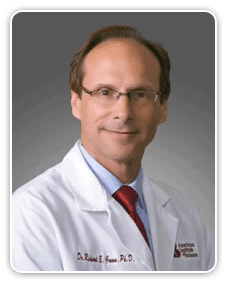
In the last 30 years, the profession of audiology has expanded its scope of practice to include the diagnosis and treatment of vestibular problems. This evolution is due in very large part to the leadership of Richard Gans, PhD. As a clinician, researcher, and educator, Dr. Gans’ contributions to vestibular care has enhanced audiology’s status in the health care arena, and has improved outcomes for thousands of patients around the world.
Dr. Gans was awarded a doctorate at The Ohio State University, specializing in auditory vestibular physiology and electrophysiology. In 1992, he founded the American Institute of Balance (ABI) in Largo, FL. He has since expanded his practice to include seven facilities as well as long-standing partnerships with the region’s leading physicians and other health care/rehabilitation providers. Due to his vision and energetic management, the ABI is now considered among the largest multi-specialty dizziness and balance centers in the country. The ABI also includes an Educational Foundation, which has provided workshops and online education to over 6000 physicians, audiologists, and physical and occupational therapists.
While providing direct patient care, Dr. Gans has also consistently sought out more effective clinical methods. His commitment to “better” has driven him to develop, with colleagues, several globally-recognized diagnostic and treatment protocols, including the ABI Dynamic Visual Acuity Test, the Gans Sensory Organization Test, and the Gans Repositioning Maneuver. He is skilled at teaching these protocols (as well as the overall vestibular system and associated disorders) in several modalities—as a writer, his textbook on vestibular rehabilitation is highly regarded by audiology doctorate students and faculty, and he has contributed chapters for several important textbooks. As a presenter, he is recognized as an engaging and effective speaker, and has been invited to teach throughout the United States and Canada, Central and South America, the United Kingdom, Europe, Russia, Singapore, Hong Kong, and Saudi Arabia. And his classroom instruction of audiology doctoral students is considered nothing less than inspired.
Dr. Gans is passionate about our profession, and has contributed countless hours of service to the American Academy of Audiology, including four years on the Academy Board of Directors and president of the Academy in 2004-2005. He also represents audiology in related organizations such as the American Academy of Neurology and the American Headache Society, while he continues to advance audiology with his current work in pediatric vestibular care and concussion.
One nominator describes Dr. Gans’ professional impact this way: “I am counted among many audiologists who wouldn’t be doing what I am doing every day without Dr. Gans’ influence. His clinical pathways approach to managing patients with dizziness was revolutionary…and always with an eye on patient outcomes.” Another describes him as a visionary, innovator, and ultimately a tireless advocate for audiology: “If I were going to have one audiologist go to bat for our profession, I would without hesitation choose Dr. Gans.”
The Distinguished Achievement Award recognizes colleagues who contribute significantly to education, research, clinical work, or the profession. The Honors Committee wholeheartedly agrees that Dr. Richard Gans does the profession proud in each of these areas.
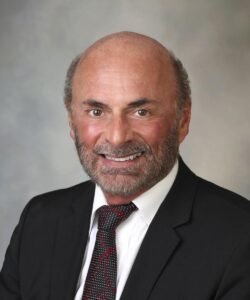
Dr. Cevette is the director of audiology within the Department of Otolaryngology–Head and Neck Surgery at the Mayo Clinic in Scottsdale, AZ. He holds affiliated faculty positions in several universities including Arizona State University, the University of Arizona, the Mayo Clinic College of Medicine, the University of Northern Colorado, and the School of Behavioral and Brain Sciences at the University of Texas. He also holds a joint appointment in the Division of Preventive, Occupational, and Aerospace Medicine at the Scottsdale Mayo Clinic. Since 2006, Dr. Cevette has been a leader and developer of the Mayo Clinic’s aerospace medicine and vestibular research laboratory which is to become the monitoring ground station for the health of the civilian space travelers of tomorrow.
Dr. Cevette is an internationally acclaimed clinician, educator, and scientist who has made a broad variety of innovative and insightful contributions to the fields of audiology and vestibular assessment. Widely acknowledged for his research in vestibular testing, he has also contributed significantly to the areas of auditory electrophysiology, ototoxicity, immitance, tinnitus, aural rehabilitation, and pediatric hearing loss. He is an accomplished author having published an impressive number of research articles, book chapters, and two textbooks. He is a greatly respected clinician and educator who has been a mentor to over 100 students and is a highly sought speaker for national and international conferences. He holds a number of patents and more than 30 invention disclosures related to his contributions in audiology, the vestibular system, and the field of aerospace medicine. His research efforts have been supported by grants from numerous federal health agencies including the United States Air Force, United States Navy, United States Army, NASA, and Boeing.
Throughout his career, he has given freely of his time and expertise to serve on Academy committees, participate as a reviewer and contributor to numerous academic journals, and serve as the administrative director of departmental activities. Dr. Cevette is known for his intellect and integrity, focused enthusiasm, incredible energy, and pleasant touch of humor. Additionally, he is a marathon runner and Iron Man triathlete. He is truly an international resource who has helped make audiology a visible and viable profession.
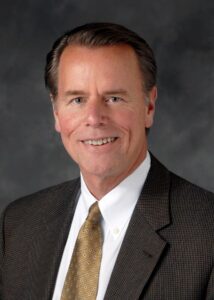
Brad A. Stach, PhD, is currently the director of the Division of Audiology at Henry Ford Hospital and an adjunct professor at Wayne State University in Detroit, MI. Dr. Stach has had an illustrious career including positions at the University of Texas; Baylor Medical Center; Georgetown University Medical Center of Washington, DC; Stanford Medical Center in Palo Alto, CA; Dalhousie University in Nova Scotia; and Washington University in St. Louis. He graduated in 1977 from New Mexico State University then continued his education by earning an MA degree at Vanderbilt University in 1979 and a PhD at the Baylor College of Medicine in Houston, TX.
James Jerger, PhD, credits Dr. Stach as being the driving force behind the creation of the Academy. As an Academy founder, Dr. Stach served as the first secretary-treasurer and established, organized, and conducted business from our first “national office” in Houston. According to Dr. Jerger, “Brad was instrumental in bringing the concept of a new audiology organization to concrete reality. In fact, it is very likely that we would not have an Academy today without Brad’s significant contributions to its gestation and delivery.” Dr. Stach has been relentlessly involved at all levels since day one in 1988. His steadfast leadership, administrative prowess, and unmatched loyalty to the Academy have benefitted not only the organization but the profession at large.
Beginning as an Academy founder, his uninterrupted voluntary service has aided every aspect of our organization. He has held too many Academy leadership positions to enumerate in detail, but among them are terms on the Board of Directors (including as president), the Board of Trustees of the AAA Foundation, the Board of Directors for the Accreditation Commission for Audiology Education, and the AAA Practice Advisory Council. He also holds the distinct honor of being the first audiologist to serve on the important American Medical Association CPT Health Care Professional Advisory Committee.
Dr. Stach is renowned for his outstanding speaking and teaching skills, resulting in high demand for him to present at state, national, and international professional venues. His presentations are invariably well organized, succinct, and clear. His numerous and impressive research contributions have been well designed and analyzed, clearly written, and widely published. He has authored and contributed chapters to numerous textbooks during his prolific publication career. Dr. Stach devotes much of his time to students as he nurtures them, challenges them, and provides them with direction and support to achieve success in their own careers.
Dr. Stach’s leadership and contributions to the field of audiology have had wide impact on research, teaching, and clinical practice. He is a versatile and prolific professional who represents the highest standards of integrity, teaching, and research. His extraordinary service to our profession, his invaluable leadership, and his contributions to the founding of the Academy clearly reflect the ideals of the Academy’s Distinguished Service Award.
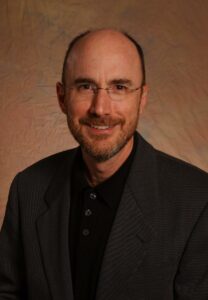
Gary P. Jacobson, PhD, completed his doctorate at Kent State University and has spent his career in several prestigious audiology settings. He is currently a professor and division director at Vanderbilt University. In earlier years, he served as division head of audiology at Henry Ford Hospital, chief of audiology and speech pathology at the Cincinnati Veteran’s Administration Medical Center, and director of the Intraoperative Evoked Potential Program and the Evoked Potentials Laboratory at the University of Cincinnati Medical Center. As a leader, he has been described as having “the ability to empower and motivate his colleagues to make a difference.”
Several supporters point out that, while many audiologists manage to develop one area of expertise, Dr. Jacobson has left his impressive mark on three distinct clinical areas of audiology: tinnitus, electrophysiology, and vestibular/balance (dys)function. In all three areas, he has contributed seminal and ground-breaking research, resulting in more than 100 peer-reviewed articles. He has also translated his bench science into clinically relevant tools used around the world, perhaps most notably the Tinnitus Handicap Inventory. The depth and breadth of his work in each area has inspired colleagues to describe him as a renaissance audiologist.
The “renaissance audiologist” sobriquet also reflects a widespread appreciation of his commitment to his profession as a clinician, mentor, and innovative program developer (e.g., the Tinnitus Clinic at Henry Ford). He is also an esteemed teacher (or as one colleague states, “one of the best presenters you will EVER hear”). His teaching-by-writing talents are highlighted as coauthor of the premier textbook on balance (Balance Function: Assessment and Management), now in its second edition.
In 2012, James Jerger announced his retirement from his role as inaugural editor of the Journal of the American Academy of Audiology. Soon after, the Academy reported that Dr. Jacobson had been named to succeed Dr. Jerger, and the profession breathed a sigh of relief: the journal would continue to be steered by highly capable hands. Dr. Jacobson’s reputation for integrity, sustained scientific productivity, generosity, and overall professionalism has garnered the respect of his peers and is formally recognized this year with the Distinguished Achievement Award.
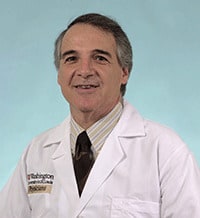
Dr. Valente completed his doctoral degree at the University of Illinois. For nearly 30 years, he has been associated with the Washington University School of Medicine in St. Louis, where he has served as director, professor, researcher, clinician, and more. In each of these roles and throughout his career, he has focused on the many challenges of amplification. As a researcher, his work has yielded important insights into the functions of dual and directional microphone technology, real-ear verification, and treatment options for single-sided deafness. As a clinician, he takes the essential next step of translating his research into clinically relevant practices. As an educator, he converts these practices into instructional content for highly popular workshops and courses around the world. And as a remarkably productive author and editor of books, chapters, and articles, he puts it all down in writing for the rest of the profession and posterity.
In addition to seeking answers to amplification questions, Dr. Valente has been a pioneer in supporting audiology’s transition to an evidence-based profession. He has tirelessly promoted the development and dissemination of rigorously developed evidence to support clinical decision making. Collaborating with like-minded colleagues, his efforts have had a profound influence on how the profession now values treatment efficacy, verification, best practice guidelines, and standards of care. Young clinicians who now are able to assume that evidence-based practice is routine have Dr. Valente to thank for his leadership and vision.
Dr. Valente is an avid supporter of the profession, volunteering time and again as chair and member of numerous committees, task forces, and work groups. He is also an inspired and inspiring educator and is especially dedicated to helping with student research. He has taken time to secure funding for students and has mentored many capstone projects from inception to the publication and presentation process. Dedication to students is consistent with other observations: those who know Dr. Valente (and it seems everyone does) invariably comment on his kindness, generosity, integrity, energy, work ethic, and eager enthusiasm for all projects.
In summary, Dr. Valente has achieved distinction in every category considered for this award: he is a valuable contributor to audiology’s scientific knowledge base, an exceptional educator at the international level, and a leader in the development of evidence-based practices. The Academy is delighted to recognize our esteemed colleague as highly deserving of this award.
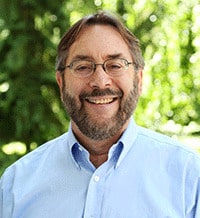
Dr. Martin has achieved remarkable accomplishments in every aspect of audiology practice spanning research, the clinic, and the classroom. While he may best be known for his work in hearing loss prevention, specifically development of the Dangerous Decibels® program, his areas of expertise span the physical and biological sciences including chemistry, quantitative analysis, computational physics, computer science, electrical engineering, cellular and environmental biology, genetics, neuroanatomy, neurophysiology, and electrophysiology, along with mathematics in the areas of calculus, analytic geometry, trigonometry, 3-D modeling and experimental design, and statistics. Dr. Martin has received 24 academic awards recognizing his achievements. Those who know Dr. Martin would say that the enthusiasm and inspiration that he has shared over the years with countless individuals in a variety of settings, disciplines, and locations around the world are even greater gifts. Together with his expertise, it is understandable why his contributions have led to his selection for this award.
Three distinct areas stand out in summarizing Dr. Martin’s unique contributions in audiology. First, he has gained national and international distinction for his research in sensory evoked potentials and intraoperative monitoring, where he has helped develop methods of recording evoked potentials that have set the stage for current practices in monitoring sensory and motor activity during surgical procedures. His pioneering work in auditory brainstem responses in infants helped set the foundation for our current practices in newborn hearing screening and diagnostic auditory electrophysiologic assessment.
Tinnitus is the second area where Dr. Martin has had a profound impact on clinical practice. His research has focused on treatment options based on physiologic and medical approaches. He has obtained over $10 million in funding to support this research. All the while he maintained a clinical practice where he worked directly with patients who suffered from tinnitus. A typical appointment involved spending five to six hours with each patient providing extensive counseling coupled with sound therapy options.
The third area is noise and hearing loss prevention. Long before the negative impact from recreational noise became popular, Dr. Martin received federal grants to develop a hearing loss prevention program culminating in the Dangerous Decibels program. Through his efforts, Dangerous Decibels has raised awareness among school-age children regarding the consequences of listening to sounds that are too loud for too long across the United States as well as in several other countries. In 2007, the American Academy of Audiology, through the DiscovEARy Zone, partnered with the Dangerous Decibels program as part of the Academy’s hearing loss prevention program. Under Dr. Martin’s leadership, U-Build-It Jolene Workshops continue to gain popularity among audiologists and nonaudiologists alike as a hearing loss prevention management tool.
Dr. Martin began a new position in November of 2013 as professor at the National University of Singapore where he will be building the audiology program. Previously he was professor of otorhinolaryngology/head and neck surgery and professor of public health and preventive medicine at the Oregon Health and Science University (OHSU), and multi program director at the Oregon Hearing Research Center at OHSU, Portland, OR. He maintains an appointment at OHSU.
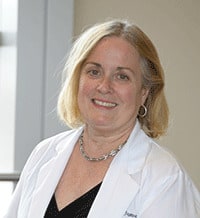
Dr. Brewer has dedicated her career to the profession of audiology for almost 40 years. Dr. Brewer is an innovator in clinical teaching and mentoring, a pioneer in the area of delivery of clinical services, and a translational researcher whose body of work has impacted generations of audiologists. In addition, her contributions to the profession through her service on many committees, task forces, boards, and the like illustrate her dedication and commitment to her colleagues past, present, and future.
For the past 11 years, Dr. Brewer has served as the audiology section chief and research audiologist at the Otolaryngology Branch, Division of Intramural Research at the National Institutes of Health (NIH) in Bethesda, MD. Her current position was preceeded by a 28-year tenure at the Washington Hospital Center in Washington, DC, where she started her professional career as a clinical fellow and rose to the position of director of hearing and speech and administrative director of oral surgery and otolaryngology.
During her long career, Dr. Brewer has mentored countless AuD and PhD students, performing research at the NIH and at their universities, and has served on research committees or as cochair of a committee for more than 50 students. This level of dedication to the education and professional development of these young clinicians and researchers, along with her work in positioning audiology within the clinical NIH programs, sets Dr. Brewer apart from her peers.
In addition to her passion for education, Dr. Brewer has developed a body of clinically relevant research that includes nearly 130 presentations at national and international meetings. Combined with this prolific legacy of presentations, Dr Brewer has authored or coauthored more than 40 journal articles and four book chapters.
Dr. Brewer has devoted countless hours to volunteer activities including serving on the Academy’s Board of Directors, Membership Committee, and Program Committee (on ten separate occasions). Perhaps her most enduring legacy was conceiving the idea of a purposeful and comprehensive leadership training conference for early career professionals, the Jerger Future Leaders of Audiology Conference (JFLAC). This novel idea has inspired many young professionals to achieve greater levels of service and leadership.
Dr. Brewer has been the recipient of many awards including twice receiving the President’s Distinguished Service Medal from the American Academy of Audiology, and she and her work colleagues received the 2012 Director’s Award at NIH for recognition of their outstanding audiologic and vestibular clinical and research services and training of students within the NIH.
Throughout her tenure as teacher and researcher, Dr. Brewer has touched and influenced the lives of many colleagues and students. Dr. Brewer is a consummate professional and embodies the characteristics worthy of this award.
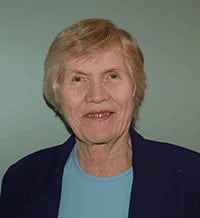
For five decades, Laura Ann Wilber, PhD, has contributed to every aspect of the profession of audiology. Her early research, begun at Northwestern University with Raymond Carhart, built on the developing scientific foundation of our fledgling discipline. At the time, standards and procedures in diagnostic audiology were just being developed, borrowing from older disciplines like acoustics and psychophysics. Dr. Wilbur was one of the first to apply this knowledge to the clinical evaluation of hearing. Her background as a teacher of the hearing impaired and speech pathologist provided a clinical perspective that guided her work toward relevant issues.
Upon completion of her doctoral work, Dr. Wilber held faculty positions at UCLA, Albert Einstein School of Medicine, and Northwestern University; and adjunct and visiting appointments at many more universities. She has held certification as a teacher of the hearing impaired, speech pathologist, audiologist, and an occupational hearing conservation program instructor.
Perhaps even more important than her published scientific contributions, Dr. Wilber represented our profession to agencies that have significant influence over our profession. These include professional organizations (AAA, ASHA, ASA, AAS, ISA, ARA, AAO and many state and local organizations), standards organizations (ANSI, ISO), government agencies (NIH, Illinois Department of Public Health), and professional boards (NBME, ABESPA). This work continues in what she inaccurately calls retirement. Her participation in these organizations has contributed enormously to our profession by representing the field as one solidly founded in science and committed to providing the highest level of education for our students and care of our patients.
Among these activities with external agencies, Dr. Wilber’s contributions to U.S. and international standards deserves special mention. She has served on writing groups pertaining to standards governing audiometry, acoustic immittance, loudness scaling, and noise measurement. This is important and often thankless work. She has always recognized the critical need to get these standards right, for the benefit of the public in general and the hearing-impaired in particular.
Dr. Wilber has taught audiology at 10 universities. Because of her solid foundation in the science of our field, her understanding of clinical issues, and her clear and well-organized approach to communicating to students, her teaching contributions have touched countless students over the course of her career.
The profession of audiology is better for having the pioneering and sustaining efforts of Dr. Laura Ann Wilber. The Academy’s Distinguished Achievement Award is a well-earned acknowledgement of her significant contributions.
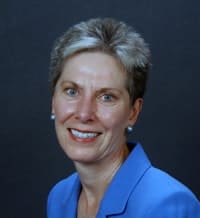
Deborah Hayes, PhD, is currently a professor in the departments of pediatrics and physical medicine at the Colorado School of Medicine and chair, audiology, speech pathology and learning services at The Children’s Hospital in Denver, Colorado. She has been a leader in audiology for more than 30 years and has published significant research work in a variety of topics with such illustrious co-authors as James Jerger, Marion Downs, and Jerry Northern.
Her over 50 publications are standards for the profession. Her textbook with Northern, “Infant Hearing, is still one of the mainstays in pediatric audiology. Recently she obtained funding, organized, and directed an international consensus meeting on the identification and management of the child with an auditory neuropathy spectrum disorder. The resulting booklet from that meeting was circulated worldwide.
Dr. Hayes has also played a major role in the development of our professional organizations. She is a fellow of ASHA and served as chair of the Committee on Infant Hearing during the time it issued some of its most important statements on identification and screening of newborns. Dr. Hayes has been a member and is a past president of the American Auditory Society. Her role in the American Academy of Audiology has been even greater. She served on the Foundation Board of Directors, the Academy Board of Directors and as president of the Academy (1997-1998). During her tenure as president she helped guide and implement changes in the government structure and legal status of the Academy. She was involved in a transition of the Academy from an organization run by volunteers to one run by professional management. She appointed the first Professional Practices Task Force, which led to the current credentialing program (ABA). She was also program chair for Academy’s annual convention and exposition, AudiologyNOW! 1991, held in Denver.
Dr. Hayes has been honored by the Colorado Speech-Language-Hearing Association and the Scottish Rite Foundation of Colorado. She was a visiting professor at the University of Queensland, Australia, and has been a contributor to programs presented by NINCDS.
Dr. Jerry Northern wrote, “Dr. Hayes is the consummate professional; she continues to bring enlightened attention to clinical hearing issues, while gaining increased visibility and respect for the profession of audiology from allied health professionals, legislative representatives, lay groups, parents and patients. Dr. Hayes represents the highest standards of integrity and is respected by all who come in contact with her.”
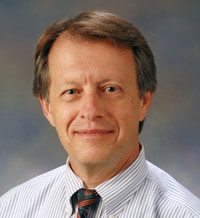
James (Jay) W. Hall III, PhD, is a man of many exceptional talents, boundless energy, and limitless generosity. It is the overabundance of these attributes and a lifetime of their application for the betterment of audiology and those with hearing and balance disorders that make Dr. Hall an ideal recipient of the Distinguished Achievement Award of the American Academy of Audiology.
By his own admission, we almost lost Dr. Hall to the world of speech-language pathology, but he was rescued by the likes of Dr. Earl Harford, Dr. Noel Matkin, and Dr. Tom Tillman at Northwestern University where Dr. Hall was studying for his master’s degree. He went on to study with Dr. James Jerger for his PhD and has since spent a very productive career in various hallowed halls of prestigious academic institutions.
Although Dr. Hall has spent the majority of his career in academia, the impact of his work has certainly not been confined to such institutions. In fact, it is hard to identify another audiologist whose influence is so palpable in so many parts of the world. He has published with colleagues in the farthest corners of the world, from South Africa to India. His educational seminars and lectures have touched students, budding audiologists, and professionals in every continent of this world. Dr. Hall continues to travel the world spreading the word about the latest innovations in audiological science and practice. As many a witness will testify, when he is not traveling, the world reaches out to him through countless email messages seeking advice about scientific and clinical questions.
At home in the United States, Dr. Hall has held every position of leadership imaginable in the institutions where he has worked. Along with these administrative and leadership responsibilities, he has amassed an enviable volume of peer-reviewed publications, book chapters, and textbooks. Perhaps Dr. Hall’s true love still remains with objective and electrophysiological evaluation of the auditory system. In this general area, his textbooks are amongst the perennial favorites, covering areas of evoked potentials, otoacoustic emissions, and other objective methods of evaluating the auditory system.
Dr. Hall is one of the founding members of the Academy and has continued to serve in many important ways. He recently completed a term as the chair of the American Board of Audiology and continues to be a permanent fixture on various organizational committees and task forces. The rest of us have learned the adage about asking the busiest person when something needs done. There are few who are busier than Dr. Jay Hall.
The selection of Dr. Hall as a recipient essentially redefines this award as he has excelled in not one, not two, but virtually all of the possible areas of excellence that this honor encompasses. But perhaps the most striking qualities that make Dr. Hall the most worthy recipient of the Distinguished Achievement Award are the generosity of his spirit and the warmth of his friendship.
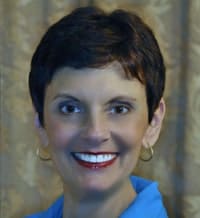
Carol Flexer’s passion for the listening needs of children in the classroom has been prolific. She has devoted her career to advocating for better listening, learning, and literacy for children with hearing loss and has had a critical impact on the role of audiologists in the educational arena. In the early 1990s, Dr. Flexer met Drs. Carl Crandall and Joseph Smaldino and a powerful collaboration was born. Their individual and collaborative efforts provided significant focus on the areas of classroom acoustics and soundfield technologies, and as a result many books and lectures were produced that remain the cornerstone texts for those topic areas both nationally and internationally.
With over 155 publications and the co-editor/authorship of 11 textbooks, Dr. Flexer has had a phenomenal impact on those she has served and on our profession. She has been involved in the education of audiologists, teachers ,and the public for more than 35 years. Her academic career began at Texas Tech University, followed by Kent State University, and for the remaining 25 of those years she worked at the University of Akron where she was named a Distinguished Professor of Audiology.
Today, Dr. Flexer continues to lecture to national and international audiences about pediatric audiology issues. She has given more than 500 presentations at state, national, and international venues, impacting tens of thousands of professionals and parents. Her ability to captivate those she teaches remains a signature of her presentation style. As so perfectly noted by a colleague, “she has an incredible gift to deliver her message simply and convincingly.” She has received numerous awards for her education efforts, including an AGBell Advocacy Award, Ohio Magazine Excellence in Education Award, New York League for the Hard of Hearing Nitchie Award for promoting mainstreaming, and Akron Regional Speech and Hearing Association Award for “Best Practices” in serving children. For her research and advocacy for children with hearing loss, Dr. Flexer has also received two prestigious awards from The Alexander Graham Bell Association for the Deaf and Hard of Hearing, theVoltaAward and theProfessional of the Year Award.
Dr. Flexer has also demonstrated pronounced leadership while serving in the capacity of president for theAmerican Academy of Audiology, the Educational Audiology Association, and the Alexander Bell Academy for Listening and Spoken Language, and on the Board of Director’s for the Auditory Verbal International Association. Dr. Flexer has an unmistakable passion for the field of audiology and an overall zest for life. Without question, her efforts throughout her career to successfully advocate for children with hearing loss have made her a clear choice for the Distinguished Achievement Award from the American Academy of Audiology.
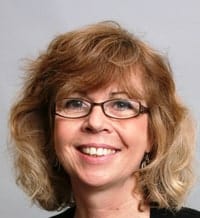
Theresa (Terry) Hnath Chisolm’s career exemplifies the intent of this prestigious American Academy of Audiology Distinguished Achievement Award. During the course of her MA work at Montclair State College and PhD work at the Graduate School of the City University of New York, she was already distinguishing herself amongst her teachers and peers. As one faculty recommendation noted, “”…she exemplifies the ideal student: one who surpasses the master.””
Since the completion of her graduate schooling, Dr. Chisolm has held noteworthy positions at every level—staff audiologist, lecturer, assistant/associate/full professor, departmental chair, and most recently special assistant to the dean in the College of Behavioral and Community Sciences at the University of South Florida. In every role, she has distinguished herself as exemplary and influential.
From her early roots as an adjunct lecturer at City University Hunter College, where she developed her passion for rehabilitative audiology, to her current (and multiple) roles in academia, Dr. Chisolm has shown the ability to combine creativity, relevance, collaboration, and innovation. This contribution has not gone unnoticed, as she is also the recent recipient of the USF Incentive Program Award. Her teaching skills have been expanded to include 100 or more presentations at the local, state, national, and international levels. She has presented in nearly every state in the union, as well as in England, Belgium, Austria, Portugal, and Germany. Most recently, she was invited by the Ida Institute in Denmark to develop a preceptor program for university professors on the human dynamics of hearing loss. This invitation was due, in a large part, to the recognition of Dr. Chisolm’s creative and relevant teaching style. She embraces adult learning principles both in the training of future clinicians and academic, as well as the maintenance of expertise for current practitioners.
All of her teaching and travels have not interfered with the significant contributions from Dr. Chisolm in the research arena. She has contributed over 50 peer reviewed articles and chapters throughout her 30 year career, mostly in the area of adult rehabilitation. In fact, Dr. Chisolm’s name is practically synonymous with the topic area of the impact of hearing loss on quality of life. Her article, “”A systematic review of the health-related quality of life and hearing aids“” has become required reading in most audiology programs throughout the country. The quality of her research has been acknowledged by her peers throughout her career through multiple awards and grants.
Dr. Chisolm has also served her profession more than most over her career. She has worked on various committees for the Academy, ASHA, Academy of Rehabilitative Audiology, and the Florida Speech and Hearing Association. She was instrumental in developing a first-class AuD program at the University of South Florida, where she recently established one of the few AuD/PhD combined programs of excellence in the country. In all, her dedication and enthusiasm for the profession, as exemplified by her many accomplishments, makes her the ideal recipient for this year’s Distinguished Achievement Award.
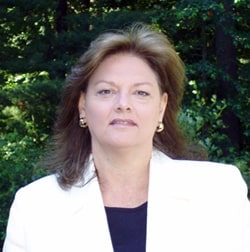
Dr. Sharon Kujawa is one of the field’s most active and accomplished audiologists and scientists. She is director of audiology at Massachusetts Eye and Ear Infirmary, the largest academically-based clinical audiology program in the world. She is an associate professor of otology and laryngology at Harvard Medical School and adjunct faculty at Harvard-MIT Health Sciences and Technology. She received her BS from Michigan State University, her MS from Idaho State University, and her PhD from the University of Arizona, where she was later named Distinguished Alumnus in Speech and Hearing.
Dr. Kujawa participated in two post-doctoral fellowships, first studying auditory pharmacology at Kresge Institute of Louisiana State University Medical Center and later studying auditory neurophysiology in the Eaton-Peabody Lab at Harvard. Before coming to her present position at Harvard, Dr. Kujawa was director of audiology and an adjunct faculty member at the University of Washington in Seattle.
Dr. Kujawa has made major contributions to the field of audiology by her years of service. Highlights of her service to the field include two terms on the Executive Board of the Academy, Board of Directors of the American Auditory Society, Editorial Board and section editor for Ear & Hearing, chair of the Research Committee of the Academy, and program chair for the Mid-Winter Meeting of the Association for Research in Otolaryngology.
Dr. Kujawa has a stellar record as a scientist and as a supporter of research. She has served as a reviewer for the National Institute on Deafness and Other Communicative Disorders and the National Institute on Aging. She is a member of the working group on translational research for NIDCD and a member of the Scientific Review Council for Deafness Research Foundation.
Dr. Kujawa’s own research is currently focused on the interactive effects of noise exposure and aging on auditory function. This area of research will lead to enhanced understanding and, certainly, amelioration of noise-induced hearing loss universally. She is exploring mechanisms related to compromise in normal auditory function from noise exposure and how noise can alter the aging of the inner ear and neural systems. In addition, she is investigating how factors such as genetic background and the efferent system interact with the damaging effects of noise. Dr. Kujawa has published more than 40 scholarly papers in the field’s most prestigious journals including Hearing Science, J. Neurophysiol.,J. Neurosci., JARO, Nature-Genetics, Otol-Neurotol,Audiol-Neurotol., Laryngoscope, and JASA.
In addition to her clinical work and research, Dr. Kujawa has led efforts for community outreach and public education related to hearing and hearing loss in both Seattle and Boston. As a direct of her outreach programs, she was instrumental in developing the Academy’s very popular Turn It to The Left® campaign.
Finally, Dr. Kujawa’s is a consummate teacher of audiology. She not only guides individual students but serves as the highest example of excellence in clinical work, applied research, teaching, and outreach. She is certainly most deserving of the distinguished achievement award of the Academy.
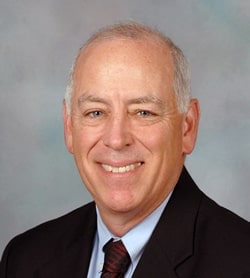
Christened with the initials “DB,” David B. Hawkins was likely destined from birth to a professional career devoted to audiology. If true, then the profession is certainly far better off today as a result. Dr. Hawkins has been one of those rare individuals who could function just as easily in the research laboratory, the classroom, or the clinic. Importantly, throughout his career he has demonstrated that he not only functioned in each of these capacities, but has excelled in each. The early portions of Dr. Hawkins’ career were spent in academia, with a greater emphasis on teaching and research, but never to the exclusion of his interests in clinical audiology. In fact, a hallmark of the first 15-20 years of Dr. Hawkins’ career is the application of good science and research skills to clinical issues confronting audiology, especially in the area of amplification.
During this portion of his career, Dr. Hawkins made seminal contributions to at least four areas involving amplification: (1) the critical importance of measuring loudness discomfort levels and using these measurements to optimize the maximum output of hearing aids; (2) the benefits and limitations of directional microphones in hearing aids, a topic of renewed interest in the field in more recent times; (3) associations between various measures of hearing-aid gain, including pioneering work with real-ear insertion gain; and (4) means of evaluating FM systems. This work has stood the test of time. For example, those measuring loudness discomfort levels in the clinic and in the research laboratory today most often use the methods developed by Dr. Hawkins and refer to these frequently as having been obtained using “the Hawkins method.”
His pioneering work in the evaluation of hearing aids with directional microphones was instrumental in tempering the exuberant enthusiasm regarding the benefits of this technology when it was published in the 1980s (and for which he received the Editor’s Award for the article of highest merit published that year in the Journal of Speech and Hearing Disorders), and has re-surfaced again in recent years as the field began to evaluate this technology anew.
During the past 15 years of Dr. Hawkins’ career, while serving as the head of the Audiology Section and the director of the Hearing Aid Clinic at Mayo Clinic Florida in Jacksonville, Florida, greater emphasis has been placed on clinical audiology, but never to the exclusion of his interests in research and teaching. Hallmarks of this more recent period include many presentations and publications on professional ethics, amplification, diagnostic audiology, and group approaches to aural rehabilitation.
Of course, not only has the profession benefited greatly from Dr. Hawkins’ three decades of contributions, but countless patients with whom he has worked throughout his career have also benefited greatly from his services as a master clinician. Perhaps the only thing surpassing his many accomplishments in research, teaching, and clinical service is his great humility about his many outstanding and important contributions to audiology.
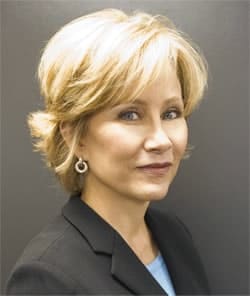
Dr. Cynthia Compton-Conley has had a distinguished career as an educator and consumer advocate. From vacuum tubes to Bluetooth®, she is unquestionably best known for expanding awareness of assistive technology for hearing-impaired persons. An acclaimed expert in this specialty area, her counsel and advice are sought worldwide.
Dr. Compton-Conley earned a bachelor’s degree in Speech-Language Pathology from Douglass College at Rutgers University, a master’s degree in Speech and Hearing Sciences from Vanderbilt University Medical School and a doctorate in Speech and Hearing Sciences from the City University of New York. Dr. Compton-Conley is currently professor of audiology and director of the Assistive Devices Center at Gallaudet University. In addition to presentations, book chapters, and peer-reviewed articles, she has given generously of her time and talents to community and consumer organizations and the Special Olympics. She has been a consultant to the telecommunications, automotive, transportation, entertainment, retail, construction, and hearing aid industries and to over 20 governmental agencies during her career.
As the principal investigator at Gallaudet’s Rehabilitation Engineering Research Center on Hearing Enhancement, Dr. Compton-Conley is currently developing an online needs-assessment tool to assist audiologists and consumers in selecting appropriate hearing assistance technology. This project is funded by the Department of Education, National Institute on Disability and Rehabilitation Research, and the Office of Special Education and Rehabilitation Services.
Dr. Compton-Conley’s contributions to the academic community extend beyond her own department and her own university. She has assisted in curriculum development in the counseling, education, and psychology departments at Gallaudet. She developed metrics for Gallaudet’s Fourth-Year AuD Externship Program, which are also used by other universities. She has served on the editorial board of the Journal of the American Academy of Audiology (JAAA), the board of the Accreditation Commission for Audiology Education (ACAE), and the ANSI Working Group on Assistive Technology. She co-authored hearing standards for State of Illinois law enforcement officers for the American College of Occupational and Environmental Medicine.
Dr. Compton-Conley has demonstrated an inspiring commitment to hearing-impaired consumers, students, and colleagues. Honors and awards include the Special Friends of Hearing Impaired People Award from the Hearing Loss Association of America, an influential consumer group; the Joel Wernick Award from the Academy of Doctors of Audiology; the Faculty of the Year Award for excellence in teaching and mentorship from her students; and the Fletcher Award in Technical Applications from the Center for Hearing and Communication.
Directly and indirectly, the core of Dr. Compton-Conley’s work has concentrated on improving signal-to-noise ratio for hearing-impaired listeners. In describing her contributions to the field, Dr. James Jerger remarked that she “has forgotten more about assistive technology than the rest of us will ever know.” Her now classic video and workbook, Doorways to Independence, earned her international recognition. Dr. Compton-Conley has motivated and inspired students for decades and she is highly esteemed by colleagues for her contributions in the lab, the classroom, and the community.
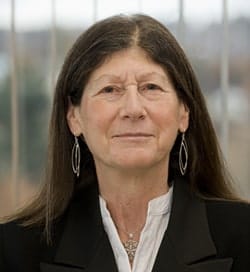
To many audiologists, Dr. Gail Chermak’s name is synonymous with research in the diagnosis and management of central auditory processing disorders. Dr. Chermak received her BA degree from SUNY Buffalo and her MA and PhD from Ohio State University. After two years as an assistant professor at Southern Illinois University, she accepted a position at Washington State University where she has had multiple academic roles for the past 32 years.
Dr. Chermak began her pioneering work in the area of central auditory processing disorders (CAPD) in the 1980s and her contributions to the field’s knowledge base have been seminal. Her work represents a coherent and focused research program on the efficacy of assessment and intervention procedures for individuals with (C)APD. Her research has not only informed our understanding and knowledge of neuroaudiological disorders and their impact on the lives of individuals with these disorders, but her efforts have shaped and guided the preferred practice model for our profession. Those who’ve attended her workshops or her university courses know that she has the unique ability to make difficult concepts easy to understand and apply.
It is virtually impossible to delve into the APD literature without repeatedly encountering her influence in the form of refereed articles, edited monographs, book chapters, and books. She has authored one book and co-authored or edited three more. She has written 10 book chapters and over 50 refereed articles in leading national and international journals in the fields of hearing and psychology. Simply put, Dr. Chermak is a gifted teacher and researcher.
What makes her academic record even more remarkable is that it was generated while she was simultaneously distinguishing herself as a university administrator. Dr. Chermak has been chair of the Department of Speech and Hearing Science at Washington State University since 1990. Her leadership in that role has been so widely recognized as superb that she was appointed interim dean of the College of Liberal Arts for the 1997-1998 year. Her collective, outstanding performance in multiple university roles (scholar, leader, teacher, mentor, and citizen) resulted in numerous university awards including the College of Liberal Arts Distinguished Faculty Award, the Edward R. Meyer Distinguished Professor Award and the Washington State University Athletics Department Faculty Excellence award to name a few.
As a Fulbright Scholar in 1989 she studied international models of health care and in subsequent years the Kellogg National Foundation funded her travel to Israel, Ecuador, Spain, Belgium, and the Netherlands to continue her studies of bioethics and health-care delivery policy. She has shared her knowledge of health-care policy and bioethics and her research in (C)APD in more than 100 national and international presentations, workshops, and articles.
Dr. Gail Chermak has indeed made notable and lasting contributions to our profession both nationally and internationally. For more than 30 years, the profession of audiology has been the beneficiary of her extraordinary talent, passion, energy.
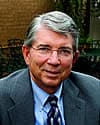
Dr. Ross Roeser is the consummate audiologist. He has had (and is still having) an exemplary career, punctuated by excellent teaching, thorough pertinent research, publishing in peer-review journals, authoring books, administrating a world-renowned center for audiology, and acting as chief editor for scientific professional journals. Shortly after obtaining his PhD, he became the first editor of Ear and Hearing, establishing it as a premier journal in the field of audiology. He is now editor-in-chief of the International Journal of Audiology. He joined the Callier Center for Communication Disorders in 1972, quickly became director of audiology, later became executive director, and recently executive director emeritus. His administrative acumen is evidenced by the world-renown reputation of the Callier Center. His service to the field is obvious from the impressive number of councils and committees on which he serves, such as Health Advisory Council, Audiology, Board of Directors and later president of the Better Hearing Institute, World Hearing Network Program among many others. Dr. Roeser has had a ubiquitous and exemplary influence on the field of audiological practice, research, administration and educational excellence.
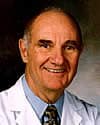
Dr. Robert Keith’s long and prolific career in audiology has had a remarkable impact on the field. He has been an audiologist for more than 40 years and even though he is “retired,” he is still going strong. Dr. Keith was a founding member and is past president of the American Academy of Audiology. He has authored 100 publications, made 300 presentations, and mentored many graduate students at several major universities. Dr. Keith is known around the world as an audiologist who is kind and understanding while maintaining a high degree of scholarship. His professional knowledge has established his position of leadership not only in audiological techniques, but also as an authority in auditory processing disorders, intraoperative monitoring, and middle ear assessment. Dr. Keith epitomizes what it is to be a well-rounded professional, a mentor, and a friend to all who know and work with him.
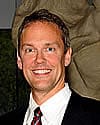
Dr. David Fabry’s unending energy and exceptional contributions to the field of audiology make him an ideal recipient of the Distinguished Achievement Award in Audiology. He has made outstanding contributions to the profession of audiology through excellence in research, teaching, clinical, and professional service. Since obtaining his PhD from the University of Minnesota, he has held positions at Walter Reed Army Medical Center as a research audiologist, Mayo Clinic as head of audiology and clinical audiologist, Phonak as the vice president of professional relations and education, and most recently as head of audiology at the University of Miami Medical Center. As a researcher, he has published more than 60 articles in a variety of journals. His presentations at professional meetings are known for their clarity and clinical relevance. Dr. Fabry’s service to the profession of audiology has been extensive and outstanding. He has served as a president of his state audiology association in Minnesota as well as the president of the American Academy of Audiology. He was the section editor for amplification for Ear and Hearing, the editor of American Journal of Audiology, and is currently the content editor of Audiology Today. He exemplifies the innovation, excellence, and dedication recognized by this award.
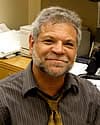
Dr. Robert Sweetow is a gifted clinician, teacher, and researcher. Dr. Sweetow has provided personal care for many patients with hearing loss, and he has helped countless other audiologists to improve their care for people with hearing loss by his teaching and research. Audiologists around the world recognize the many contributions made by Dr. Sweetow in the areas of aural rehabilitation, hearing aids, tinnitus, counseling, and forensics.
Dr. Sweetow received a BS degree in Communicative Disorders from the University of Iowa, an MA degree in Communicative Disorders from the University of Southern California, and a PhD degree in Audiology from Northwestern University. Dr Sweetow is Director of Audiology and Clinical Professor of Otolaryngology at the University of California, San Francisco (UCSF) Medical Center.
Dr. Sweetow has been an educator in the clinic his entire career and s audiology education has changed, he has embraced the changes. One example is the exemplary 4th-year clinical externship he created at the UCSF Medical Center. He also has a passion to provide continuing education for practicing audiologists. His biannual audiology conferences have provided outstanding education for audiologists.
Dr. Sweetow’s passion to provide the best care for individuals with hearing loss motivated him to develop LACE, Listening and Communication Enhancement. LACE, an evidenced-based self-paced program, has become known around the world. He is truly a pioneer in implementing an effective and affordable rehabilitative program for people with hearing loss. Dr. Sweetow has improved hearing aid fitting with LACE’s easily accessible patient education. LACE is a wonderful example of Dr. Sweetow’s commitment to education, research, and clinical program development.
Dr. Sweetow has continued to investigate how best to provide audiologic assessment and treatment. He recently proposed an assessment model that focuses on patient function along with audiometric results, called the Functional Communication Assessment. He has proposed a comprehensive treatment program that includes patient education, auditory training, and amplification and assistive technologies with patient support with workshops and counseling.
Dr. Sweetow also has provided outstanding service to the Academy. He is known as a critical listener and contributor, and while serving on the Board of Directors, he helped to develop the Marketing and Public Relations Committee. He has participated in the scientific programs of every annual convention of the American Academy of Audiology.
Dr. Sweetow is among our most notable audiologists and is recognized around the world for his innovative contributions to Audiology.
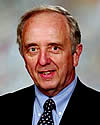
Jon K. Shallop, PhD personifies what the Academy’s Distinguished Achievement Award signifies. Dr Shallop’s range of expertise varies considerably. His impact on the field of audiology is evidenced by his many publications, papers and invited presentations. Presently Dr. Shallop is a Staff Consultant in the Department of Otolaryngology with Faculty Privileges and is a Professor of Otolaryngology at the College of Medicine, Mayo Clinic in Rochester. Dr Shallop’s research interests include cochlear implants, neural response telemetry, averaged electrical stapedius reflex and bimodal speech processing (hearing aid and cochlear implant).
Dr. Shallop obtained his BS in Chemistry and Physics at Edinboro State College, his MA from Kent State University in both Speech Pathology and Audiology and his PhD in Speech and Hearing Sciences and Experimental Psychology from Ohio State University. Among the positions he has held are; Assistant, Associate and full Professor at Ohio University, Clinical Research Associate at the Royal Berkshire Hospital, UK, Professor of Audiology at the University of Northern Colorado, Executive Director at the Denver Ear Institute, and Audiology Consultant for Cochlear Corporation among others.
He is a researcher, clinician and educator of the highest caliber. While his primary focus for the past few years had been in cochlear implants, he certainly is not a single area person. His publications, lectures and teachings have covered the gamut in the science of audition. One can find publications in acoustic reflex, temporary threshold shift, evoked responses, cochlear implants, electric response audiometry, hearing loss in neonates, surgical monitoring, and so on. He was awarded Ear and Hearing Editor’s Award for Manuscript of the Year. He has co-authored three books and has written 19 chapters in other texts. The list of invited presentations is equally impressive; he has traveled throughout the world giving presentations, again covering a myriad of subject matter.
Dr. Shallop is highly regarded for his teaching prowess. Dr. Shallop has been Visiting Professor at Oregon College of Education, Howard University, Western Washington University, Butler University, Ohio State University and Purdue University. His vita reveals a total of 23 individuals who he has mentored, producing significant research with each of them.
Here are several excerpts from letters of recommendation: “…you have to be impressed at the huge impact he has made through his work and publications.” “… a person of the highest integrity.” “… after talking with Jon, I always am excited about new ways to think about many concepts.” “Key … is his uncanny skill to develop new techniques useful in the [clinic]…” Dr. Shallop was elected Fellow in the American Speech-Language-Hearing Association and is an Honorary Member of the Otorhinolaryngological Society of Columbia University.
Finally, he finds time in his busy schedule to serve on the Board of Directors for the Chorale Arts Ensemble of Rochester.
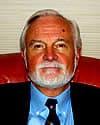
Dr. Roger Ruth is a highly respected internationally recognized audiologist with remarkable clinical, research, and teaching accomplishments. He has had significant impact on generations of students and fellows, as well as otolaryngology residents. Dr. Ruth has chaired 25 doctoral dissertations, the majority since joining James Madison University in 2000. His dedication to his students is outstanding. Dr. Ruth’s ability to present complex information that facilitates greater understanding by students and peers alike is a testament to his skill as a gifted teacher and clinician. He has shared generously his knowledge nationally and internationally and continues to do so.
Dr. Ruth received a BA degree in Speech and Hearing Science, an MA degree in Audiology, and a PhD degree in Audiology from the Ohio State University. He is Director of the Division of Communication & Balance and Professor of Otolaryngology and Human Services at the University of Virginia. Dr. Ruth also is Professor of Communication Sciences and Disorders at James Madison University.
For more than 30 years, Dr. Ruth has produced influential and pioneering articles in the areas of stapedial reflex dynamics, auditory brainstem response, intraoperative neurophysiology, electrocochleography, cochlear implants, and tinnitus. His work in electrocochleography has impacted the methods used to conduct this examination in audiology clinics throughout the nation and world.
In addition to his clinical, teaching, and research contributions, Dr. Ruth has served as an ad hoc reviewer for the National Institutes of Health and the Veterans Administration. He has served on countless committees as a subject matter expert for the professions of Audiology and Otolaryngology. This service to the profession has been contributed over and above his clinical, research, and teaching responsibilities.
Dr. Ruth is one of the longest-serving audiology directors in a university medical center in the United States. He is well respected and well liked by his professional colleagues. It has been said that Dr. Ruth could be thought of as an “Ambassador of Audiology”, because he is a wonderful role model. He is passionate about Audiology and its future, and he is held in highest regard by his students. Among his many accomplishments, Dr Ruth is a founding member of the American Academy of Audiology.
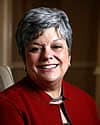
Dr. Judith Gravel is one of the world’s preeminent pediatric audiologists. She has made wide-encompassing contributions in research, education and hearing health care policy that have major impact on the lives of children with hearing loss and their families. Dr. Gravel received a BA degree in Communication Disorders and an MA degree in Audiology from the University of Massachusetts, Amherst. She received her PhD degree in Hearing and Speech Sciences from Vanderbilt University. Dr. Gravel is the Director of the Center for Childhood Communication, The Children’s Hospital of Philadelphia.
Dr. Gravel has an active research career, with her projects being funded by the National Institute on Deafness and Other Communication Disorders, the Maternal and Child Health Bureau, the Centers for Disease Control and the State of New York. She has conducted research and published findings on a variety of topics related to pediatric audiology, with her most prominent contributions being in the areas of otitis media and newborn hearing screening. Because of her expertise in newborn hearing screening, she has helped several states and agencies in the United States with their hearing screening programs and has advised numerous other national agencies including those in the United Kingdom, Brazil, and Canada. Similarly, her expertise is sought in the area of otitis media. She has served on editorial boards of four journals and serves as a peer reviewer for more than a dozen others.
Dr. Gravel is an outstanding communicator and is a sought-after international speaker. She has presented hundreds of keynote addresses, symposia and invited presentations. Her colleagues note that her presentations are engaging, thought-provoking and clinically relevant. She has educated countless audiologists, hearing scientists, physicians and other professionals around the world through her presentations. One of her collaborators notes that she is held in high esteem by both clinicians and scientists, which brings a stronger scientific base to the practice of clinical audiology.
As stated in her nomination, what sets Dr. Gravel apart from other researchers is her collaborative nature, consensus-building abilities and vision. Dr. Gravel works on projects that address critical issues, bringing together professionals from a variety of disciplines on order to provide the ultimate services to children and their families. A prime example is that she has been an appointed member of the Joint Committee on Infant Hearing since 1999. Moreover, she served as chair of the committee from March 2003 through March 2005 and was one of the primary editors of the 2007 guidelines. Dr. Gravel has served the National Institutes of Health on grant review panels and has been on working groups for agencies such as the Centers for Disease Control, the National Institutes of Health and the Maternal and Child Health Bureau. In addition, she has served on numerous advisory boards for prestigious conferences and institutions. Her monumental achievements are surpassed only by her warmth, sense of humor, honesty and personal integrity. Dr. Gravel’s scholarship and leadership in pediatric hearing health is richly deserving of the American Academy of Audiology Distinguished Achievement Award.
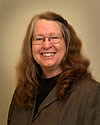
Dr. Kristina English holds a unique and influential role in shaping and improving the practice of clinical audiology. She is one of a small handful of professionals who have shifted our focus from the audiogram to the patient, and has brought to our attention the counseling needs of individuals with hearing loss and the parents of young patients with hearing loss. By focusing attention on the communication deficit as a whole, and the affect it has on an individual’s meaningful relationships with family and friends, Dr. English has literally changed the way audiologists think.
Dr. English received a BA degree in Speech-Language Pathology and Audiology and an MA degree in Communication Disorders from San Diego State University. She received her PhD degree in Education/Special Education from San Diego State University/Claremont Graduate University. Dr. English is currently Associate Professor, University of Akron, School of Speech-Pathology and Audiology.
Because of her innovative clinical practice, scholarship, and education of current and future audiologists, Dr. English has helped us develop a more humanistic approach to service delivery. Dr. English has shared her perspective on audiologic care by writing five well-respected books on counseling. One in particular, which was co-written with John Greer Clark, was a truly pioneering effort in the area of counseling and is perhaps the most coherent textbook on the topic for audiologists. She has also written multiple book chapters and articles. These many publications have guided experienced audiologists across the globe in providing more effective counseling to patients.
Dr. English has earned a national reputation as an effective, entertaining, and extremely knowledgeable instructor during her 20 years of teaching at the undergraduate and graduate levels. She is also well known and highly sought after as a speaker, indicated by the fact that Dr. English has given numerous professional refereed and invited presentations, seminars, workshops, and keynote addresses across the country. Dr. English is known and respected for her ability to instruct students and audiologists in a manner that has a lasting impact, while challenging students and colleagues alike to engage in self-examination, and learn and grow in new directions.
Dr. English organized the first Audiology Teaching Conference, which is now a biennial event. When she served as the Clinical Coordinator for AuD externs while on faculty at the University of Pittsburgh, Dr. English developed and implemented a system to facilitate all aspects of the extern experience. In this way, and in many others, Dr. English has been at the forefront of developing and sharing guidelines and solutions to the many of the challenging issues faced by AuD programs. In addition to her exemplary scholarship and clinical teaching skills, Dr. English also serves on the Academy Board of Directors and continues to participate in shaping the field by her presence on numerous task forces and committees.
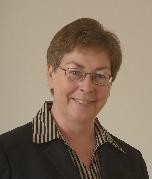
Dr. Sharon Lesner has excelled as an educator, clinical service provider, administrator, mentor, and researcher. Her students and colleagues praise her broad range of abilities. Dr. Lesner was the driving force behind the development of the Northeast Ohio AuD Consortium, NOAC. Her abilities and commitment were the impetus for the faculty to vote unanimously to develop a clinical doctorate in Audiology at the University of Akron. Dr. Lesner led a team which developed the curriculum for the new AuD degree. The Board of Regents of the State of Ohio made the decision that no new doctoral degrees would be approved. This did not deter Dr. Lesner. The proposal of a joint clinical doctorate between Kent State University and the University of Akron was approved by the Board of Regents. This was an excellent way to combine the clinical program at the University of Akron and the research program at Kent State University. The program began during 2001. Dr. Lesner received her PhD from Ohio State University during 1979. Dr. Lesner was named Fellow of the Institute for Life Span Learning and Gerontology. From 1998 to 2002 she served as a Research Scholar for the Cleveland Clinic Foundation.
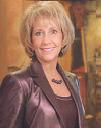
Dr. Gyl Kasewurm began her private practice, Professional Hearing Services, in St. Joseph, Michigan, during 1983 when audiologists were not dispensing hearing aids. Dr. Kasewurm dedicated herself to improving patient care. Her patient care innovations include a virtual real-world simulation to investigate hearing aid outcome measures, a community education series featuring nationally respected presenters, and the development of a Patient Advisory Board for her practice. Better Hearing Institute awarded Professional Hearing Services the Audiology Practice of the year 2005 and chose it to be featured in the 2006 PBS Spotlight on Hearing. Dr. Kasewurm was awarded the Chamber of Commerce Entrepreneur of the Year Award in 2003. The New York City School of Business awarded her service delivery model second place of 144 entries in the National Plan Competition during 2005. Dr. Kasewurm has been a leader in the American Academy of Audiology. She has served on numerous committees including chair of the Program Committee for the 2003 American Academy of Audiology Convention. Dr. Kasewurm has published numerous articles regarding how to provide patient service, and she has presented more than 50 programs to audiologists. Dr. Kasewurm is always willing to share her ideas with her peers.

Dr. David Goldstein is well known as one of the early promoters of the expansion of audiologists’ scope of practice to include hearing aid dispensing. He knew that hearing aid dispensing by audiologists was essential for best patient care and for the profession of audiology. However, Dr. Goldstein probably is best known for his determination that audiology must become a doctoral-level profession for best patient care and for the profession of audiology. Hearing aid dispensing and the AuD degree has proved to be in the best interest of the patients we serve and of our profession. Clearly, the current state of audiology and its future as a health-care profession would be very different had the goals of hearing aid dispensing and the AuD degree not been achieved. Dr. Goldstein was a prolific researcher whose publications focused primarily on amplification and speech perception. He wrote extensively about auditory rehabilitation and provided models of university-based service delivery that are still found at academic institutions across the nation. Dr. Goldstein is one of the American Academy of Audiology’s founders. As both an educator and visionary, Dr. Goldstein recognized the need for practitioners to have the knowledge and skills necessary to serve persons with hearing and balance disorders today and in the future.

Dr. Ted Glattke is the quintessential scholar, investigator, educator and mentor of students and colleagues. His dedication to students, his service to American Indians and children in Mexico, his pioneering research in evoked potentials and otoacoustic emissions, his administrative service to university, local, national and international organizations and his enduring support of colleagues places Dr. Glattke among the most accomplished members of our profession. He has authored, edited, or coedited over 75 scholarly publications and presented more than 200 invited lectures. He has directed the research and degree programs of 51 graduate students, including eight Ph.D dissertations. His core altruistic nature is reflected in his long and sustained service to underserved populations in the United States and Mexico. He sought, obtained and sustained a program at the University of Arizona for the graduate education of American Indian students in communication sciences and disorders. He has served as a member or chair in national and international professional organizations and boards too numerous to list. Dr. Glattke has contributed on the highest and most sophisticated level to audiology’s science, its education of students and professionals, its organizational affairs and its clinical services. His intellect and knowledge, along with his personal grace and humane spirit, are cherished by his colleagues.

Kathy Beauchaine is a master audiologist and clinician-scholar who exemplifies what every clinician strives to be. She is an exceptional clinician, researcher, speaker and educator. While Ms. Beauchaine sees patients of all ages, she is nationally known for her long, exceptional audiological care for pediatric patients and their families. She has been pushing the envelope of best practice for care of infants and children long before the current surge of interest in this area. Because of her exceptional abilities in critical thinking, creativity and compassion for each child, she has risen to be a leader in pediatric audiology. She is an invited member of several working groups that write guidelines for pediatric audiology. Ms. Beauchaine has authored or coauthored 33 publications in peer-reviewed journals, 9 book chapters and 12 other articles. She has given over 60 presentations at local, national and international meetings. Ms. Beauchaine is an instructor at Creighton University School of Medicine and routinely supervises audiology students for their clinical training. She currently is a member of the Board of Audiology and Speech Language Pathology at the State Board of Health. Her unique combination of clinical skills, clinical experience, and attitude toward learning and educating others places her among the Academy Distinguished Award recipients.

Dr. Robinette has been a role model, a mentor, and an international leader in the field of audiology. Throughout his career he has been actively involved in research and professional service whether he was in the role of an educator, administrator, or clinical service provider. He has authored over 60 scholarly publications. His early work in amplification led to the development of advanced technology for digital hearing aids. As a matter of fact, he and his colleagues hold a patent on this work. He is known worldwide for his work with otoacoustic emissions (OAEs). His early rigorous work with OAEs did much to advance our understanding and use of OAEs. His book Otoacoustic Emissions: Clinical Applications, co-authored with Ted Glattke, is considered one of the authoritative texts on OAEs. His professional service is also quite impressive. He has held approximately 50 appointed or invited positions involving professional service at the local, state, national and international level. In fact, he has been a member of a professional committee, task force, panel, board, or working group every year since 1978. Dr. Robinette has enriched the lives of every student he has taught, every colleague he has worked with, and every patient he has provided care to, through his knowledge and personal character.

One of the most recognizable faces among audiologists is that of Dr. Mueller. Perhaps it is due to his over 300 presentations at the state, national and international level. Perhaps it is because he is the creator and designer of the Trivia Bowl. Perhaps it is because he created and developed “Page Ten”, a monthly feature in The Hearing Journal. Or perhaps it is because he is who he is! In the area of scholarly works, he has over 100 publications primarily in the areas of probe-microphone measurements, hearing aids, directional microphones, and central auditory processing. His Probe Microphone Measurements (co-authored with David Hawkins and Jerry Northern) is one of the authoritative texts on real ear measures. His two-volume set Audiologist’s Desk Reference (co-authored with Jay Hall) is considered one of the “go-to” books in audiology. He was one of the original founding members of the American Academy of Audiology, as well as the founder and first President of the Colorado Academy of Audiology. He has been honored as an ASHA Fellow with the DiCarlo Clinical Achievement Award and has received the Legion of Merit Award from the U.S. Army. Dr. Mueller is revered for his innovative thinking and his art of presentations.

Dr. Hall is one of the nation’s preeminent hearing scientists. His over 100 peer-reviewed articles over the past 30 years, with three-quarters of them published in the Journal of the Acoustical Society or Journal of Speech and Hearing Research, have provided significant contribution to the profession of audiology. He is perhaps best known for his discovery and investigation of the co-modulation masking release (CMR) paradigm. The CMR paradigm led hearing scientists to view the auditory periphery as a multi-channel signal processing system ultimately impacting the development of processing strategies for hearing aids and cochlear implants. His other areas of investigation have been the effects of mild hearing loss on child development and the effects of glycerol in the diagnosis of Meniere’s disease. The impact of his research on the clinical practice of audiology has been recognized by the National Institutes of Health (NIH). In 1988, he was awarded the Claude Pepper Award of Excellence by NIH that provided funding for 7 years. In fact, Dr. Hall has been funded by the NIH continuously for the last two decades. His prolific body of scientific work has had a significant impact not only on the advancement of our scholarly knowledge but our clinical work.

Dr. Freeman’s leadership, innovation, and pioneering efforts have made significant impacts on the profession of audiology, particularly in the areas of governmental and legislative initiatives and the Au.D. degree. His dedication to professional service began early in his career and continues today. He has been instrumental in changing licensure laws—changes that set licensure standards for other states and continue to resonate. In 1993, he was elected to the Board of Directors of the American Academy of Audiology. In 1996, he was elected President of the Academy. His contributions to the Academy included work on numerous task forces and committees. One of the most notable among his accomplishments is his work for the passage and implementation of the Federal Employee Benefit Health Plan initiative providing direct access for audiology care to over eight million Americans. Dr. Freeman has clearly established himself as an advocate for the student and the Au.D. degree. He began the first distance-learning Au.D. program which has now become international as a result of his efforts. He truly has had an impact on our profession as seen in many political, educational, and service delivery advances.